Organ transplantation is a surgical process of removing one person’s organ or tissue (the donor) and placing it into another person (the recipient) this is done when the recipient’s organ has failed working or damaged permanently. Both organs and tissues can be transplanted. There are only eight organs namely liver, lungs, heart, kidneys, pancreas and small intestine and Tissues like skin, corneas, bone tissues including tendons and cartilage, heart valves and blood vessels that can be donated.
For streamline organ donation and transplantation activities, the legislation passed the Transplantation of Human Organ Act (THO) in 1994. In India, kidney transplants started in the 1970s and since then, India has been a leading country in transplantation on the Asian subcontinent. Nearly 500,000 people die in India due to the non-availability of an organ leading to a rate of 0.26% per million organ donations.
Though the process and cost of organ transplantation are easy the reason behind these statistics is fear, negligence, high religious value or emotional attachment to family members.
For a transplantation one must first complete the legal requirements, that is, one must be above 18 years of age, the definition of death and consent of the individual. The organs and blood group of both donor and recipient must match. After completing the legal requirements, one should register themselves with the Zonal Transplant Coordination Centre (ZTCC) and get an NOC.
The cost of transplantation varies depending upon the organ or the tissue. Averagely, a heart transplant costs between USD 15000 to 25000, bone marrow transplant cost USD 35000 to 40000 whereas a kidney transplant cost USD 7000 to 10000. And, the postoperative medicines incur an expense of around 150 to 300 $ per month.

Sarvodaya Hospital and Research Centre located in Faridabad, India is accredited by NABH, NABL. Also listed below are some of the most prominent infrastructural details:
PROCEDURE
DOCTORS IN 14 SPECIALITIES
FACILITIES & AMENITIES

Apollo Hospitals Bannerghatta located in Bengaluru, India is accredited by JCI, NABH. Also listed below are some of the most prominent infrastructural details:
PROCEDURE
DOCTORS IN 13 SPECIALITIES
FACILITIES & AMENITIES

Fortis Hospital located in Bengaluru, India is accredited by ISO, NABH. Also listed below are some of the most prominent infrastructural details:
PROCEDURE
DOCTORS IN 12 SPECIALITIES
FACILITIES & AMENITIES

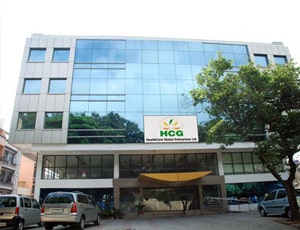
HCG Kalinga Rao Road located in Bengaluru, India is accredited by NABH, NABL. Also listed below are some of the most prominent infrastructural details:
PROCEDURE
DOCTORS IN 3 SPECIALITIES
FACILITIES & AMENITIES

Fortis Hospital located in Kolkata, India is accredited by ISO, NABH. Also listed below are some of the most prominent infrastructural details:
PROCEDURE
DOCTORS IN 12 SPECIALITIES
FACILITIES & AMENITIES

Ruby Hall Clinic located in Pune, India is accredited by NABH. Also listed below are some of the most prominent infrastructural details:
PROCEDURE
DOCTORS IN 13 SPECIALITIES
FACILITIES & AMENITIES

Aster CMI Hospital located in Bengaluru, India is accredited by JCI, NABH. Also listed below are some of the most prominent infrastructural details:
PROCEDURE
DOCTORS IN 13 SPECIALITIES
FACILITIES & AMENITIES
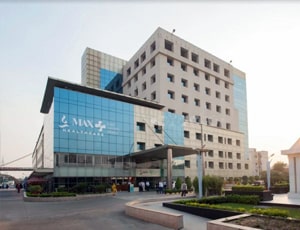
Max Super Specialty Hospital, Vaishali located in Ghaziabad, India is accredited by NABH, NABL. Also listed below are some of the most prominent infrastructural details:
PROCEDURE
DOCTORS IN 14 SPECIALITIES
FACILITIES & AMENITIES

There are a wide variety of healthcare facilities and specialized, targeted treatments provided by MGM HealthCare. Some of its most prominent services are listed below:
Institute of Heart and Lung Transplant and Mechanical Circulatory Support: Well renowned for having the third-highest number of heart transplants in a year (102) and also the successful completion of several other transplant surgeries and cardiac surgeries.
Cardiac Sciences: They offer a variety of screening tests and facilities including Tilt Table Test, Coronary Angioplasty and Stenting, CT Angiography, Coronary Artery Bypass Grafting, Stress Echocardiogram, Cardiac Stress Test and Cardiac Catheterisation.
Obstetrics and Gynaecology: They provide all services to ensure a woman’s well-being. Some of the services offered are Menstrual Cramps Treatment, Colposcopy, Myomectomy, Vaginal Hysterectomy, Breastfeeding Support, Ovarian Cyst Removal, Menopause Management, Vaginal Birth After Caesarean (VBAC), and Menorrhagia Treatment.
Orthopedics: Bilateral Knee Replacement, Total hip Replacement, and Knee Arthroscopy are all the procedures that are offered in this department.
Liver Transplantation: An exceptionally skilled team of professionals who have performed over 4,000 liver transplant surgeries and an operation theatre and ICU specifically dedicated to HBP surgery is available at the patient’s disposal.
Emergency Medicine: MGM Healthcare has a fully functioning facility dedicated to emergency medicine that operates 24 hours a day and 7 days a week.
Oncology: The patients will be in the safe hands of well-trained medical personnel qualified in the field of oncology and specialize in procedures like Bowel resection surgery, Biopsy, Lumpectomy, Liver Resection Surgery, Lung Cancer resection surgery, Lymph Node Surgery, and Laparoscopic Prostatectomy. They also provide cancer treatments like Chemotherapy, Immunotherapy, and Targeted Therapy.
Anaesthesiology and SICU: They specialize in the field of local, general and regional anesthesia and work to assist doctors during surgical procedures.
Neurosciences and Spine: The doctors in this department handle difficult procedures like Brain Tumour Surgery, Spine Reconstructive Surgery, Neuro Surgeries, and Spine Surgeries with the utmost ease and professionalism. They also have a specific area dedicated to Neuroanaesthesia and NeuroCritical Care.
Do visit the environment-friendly medical facility in Chennai and experience medical excellence.
PROCEDURE
DOCTORS IN 13 SPECIALITIES
FACILITIES & AMENITIES

Max Hospital (Gurgaon branch), one of the top medical facilities in India, was established in 2007. Max Gurgaon Hospital is the first multi, super specialty tertiary care in the Location. Out of many other awards, the hospital also possesses the Express Healthcare Awards for Excellence in Healthcare. It is also certified to ISO 9001:2000 standards. The Institute of Minimal Access, Metabolic & Bariatric Surgery at Max Gurgaon has been designated as a Center of Excellence for providing cutting-edge Clinical Services and Surgical Training Programs for Abdominal Wall Hernia Surgery.
Over 5 lakh patients have been treated at the 92-bed Max Hospital Gurugram, which holds expertise in 35 specialized fields such as Cardiac Sciences, Minimal Access, Laparoscopic Surgery, Neurosciences, Urology, Orthopaedics, Aesthetics, Reconstructive Surgery, and Nephrology. The laboratories at Max Healthcare hospitals are accredited by NABH and NABL. It also provides hemodialysis for patients who have end-stage kidney disease and requires renal replacement therapy. Team of doctors and nurses at the hospital provides integrated medical care in a multi-disciplinary setting. As a result, it has received multiple awards and accreditations.
International patients have been treated impeccably here as all the nursing staff, shift doctors, and treating doctors are quite courteous and supportive towards the patients. There is no doubt that being in the hospital can make you feel at home.
PROCEDURE
SPECIALITIES
FACILITIES & AMENITIES
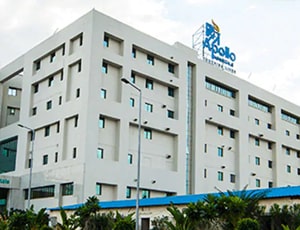
Apollo Hospital located in Chennai, India is accredited by JCI, NABH. Also listed below are some of the most prominent infrastructural details:
PROCEDURE
DOCTORS IN 13 SPECIALITIES
FACILITIES & AMENITIES
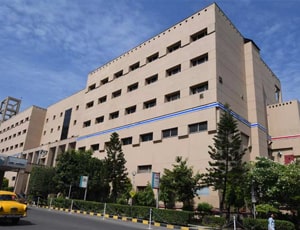
Apollo Multispecialty Hospitals located in Kolkata, India is accredited by JCI, NABH. Also listed below are some of the most prominent infrastructural details:
PROCEDURE
DOCTORS IN 13 SPECIALITIES
FACILITIES & AMENITIES

Fortis Hospital located in Noida, India is accredited by ISO, NABH. Also listed below are some of the most prominent infrastructural details:
PROCEDURE
DOCTORS IN 12 SPECIALITIES
FACILITIES & AMENITIES

Wockhardt Hospital, Umrao located in Thane, India is accredited by NABH. Also listed below are some of the most prominent infrastructural details:
PROCEDURE
DOCTORS IN 13 SPECIALITIES
FACILITIES & AMENITIES
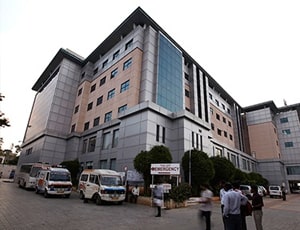
BGS Gleneagles Global Hospitals located in Bengaluru, India is accredited by NABH, NABL. Also listed below are some of the most prominent infrastructural details:
PROCEDURE
DOCTORS IN 14 SPECIALITIES
FACILITIES & AMENITIES
Ask your healthcare adviser for the best multiple options and choose the one that meets your expectations
India has two accreditation standards for its healthcare organisations. One of them is National Accreditation Board for Hospitals & Healthcare Providers (NABH) Standards. National Accreditation Board for Hospitals & Healthcare Providers is a much vied for accreditation standard by healthcare providers. The second accreditation is Joint Commission International whose quality benchmark is sought after by so many different healthcare providers.
World-class medical treatment is offered at affordable cost in Indian multispecialty hospitals. These hospitals can do all kinds of surgeries and they have several specialties. These wonderful hospitals incorporate even the general medical needs of patients. The hospitals that are providing the best treatment in India are:
Affordable healthcare and superior infrastructure are the main reasons for the popularity of India in the medical tourism sector. India has some of the finest hospitals in the world that use high-end technologies at par with the western world and adhere to international health standards. The doctors from India are highly professional, are providing treatment with precision and accuracy and skilled. Some of the other important factors that contribute to making India one of the most favored destinations for medical tourism are ease of travel, ease of communication, availability of alternative treatment, and visa assistance.
Highly skilled Indian doctors with precise application of their skills has ensured that they are positively regarded by patients. No matter what new healthcare challenges are present before them, the doctors in India face and overcome them with a lot of confidence. Indian medical fraternity boasts of being an alumni of the best educational institutions in the world. Indian doctors and surgeons strive to provide you with the best of medical care so that you feel right at home.
Once you have decided that you wish to come to India for medical purposes, documents come into the picture. When traveling to India for your treatment, you need to carry travel documents, medical documents and get your finances ready. The required documents are outlined here:
We bring to you the popular procedures being routinely accomplished in India:
Any international travel requires vaccinations and up-to-date immunizations. All medical tourists traveling to India need to get vaccinated before they leave their country to ensure their safety. Please remain updated with the travel advisory issued by the Government of India or remain in touch with the hospital in India to get complete information on vaccination guidelines. The vaccinations like hepatitis A, hepatitis B, Covid, typhoid fever, Japanese encephalitis, rabies, DPT, measles, yellow fever have become essential before your India visit.
The Indian healthcare sector is capable to provide the safety and comfort that International medical travellers require. The hospitals in India have international patient care centers providing all kinds of assistance and care that the patients require. Your needs and requirements as a medical traveller in India are met by the hospitals by going the extra mile. There are many facilities available at Indian hospitals such as room reservation, visa and embassy assistance, hotel services and apartment bookings, language interpretation services, tele-consults and pre departure evaluation.
Some of the leading medical tourism destinations in India are Mumbai, Kolkata, Chennai, Delhi, Hyderabad, and Bengaluru. The excellent medical services on par with many developed countries make India a hub for medical tourism. Affordable medical care with world-class facilities, impeccable patient care, and easily available medical visas make the country a foremost choice for international patients. The medical tourism sector in India is on a growth spree reflected well in the various medical tourism destinations, being promoted well by the Government of India in tandem with various private players in the healthcare sector.
World-class medical treatment is offered at affordable cost in Indian multispecialty hospitals. These hospitals can do all kinds of surgeries and they have several specialties. These wonderful hospitals incorporate even the general medical needs of patients. The hospitals that are providing the best treatment in India are:
Highly skilled Indian doctors with precise application of their skills has ensured that they are positively regarded by patients. No matter what new healthcare challenges are present before them, the doctors in India face and overcome them with a lot of confidence. Indian medical fraternity boasts of being an alumni of the best educational institutions in the world. Indian doctors and surgeons strive to provide you with the best of medical care so that you feel right at home.
We bring to you the popular procedures being routinely accomplished in India:
The positive evolution towards increasingly advanced techniques and technologies has lead to a steady upgradation in the popular procedures performed in India. Heart surgeries, orthopaedic procedures, organ transplants and cancer treatment are on a growth path in India because of the exceptionally good doctors and the lower cost of surgery and treatments. The abundance of good hospitals and additional healthcare facilities is leading to the growth of popular procedures being performed in India.
The Indian healthcare sector is capable to provide the safety and comfort that International medical travellers require. The hospitals in India have international patient care centers providing all kinds of assistance and care that the patients require. Your needs and requirements as a medical traveller in India are met by the hospitals by going the extra mile. There are many facilities available at Indian hospitals such as room reservation, visa and embassy assistance, hotel services and apartment bookings, language interpretation services, tele-consults and pre departure evaluation.
World-class medical treatment is offered at affordable cost in Indian multispecialty hospitals. These hospitals can do all kinds of surgeries and they have several specialties. These wonderful hospitals incorporate even the general medical needs of patients. The hospitals that are providing the best treatment in India are:
Highly skilled Indian doctors with precise application of their skills has ensured that they are positively regarded by patients. No matter what new healthcare challenges are present before them, the doctors in India face and overcome them with a lot of confidence. Indian medical fraternity boasts of being an alumni of the best educational institutions in the world. Indian doctors and surgeons strive to provide you with the best of medical care so that you feel right at home.
We bring to you the popular procedures being routinely accomplished in India:
The positive evolution towards increasingly advanced techniques and technologies has lead to a steady upgradation in the popular procedures performed in India. Heart surgeries, orthopaedic procedures, organ transplants and cancer treatment are on a growth path in India because of the exceptionally good doctors and the lower cost of surgery and treatments. The abundance of good hospitals and additional healthcare facilities is leading to the growth of popular procedures being performed in India.
The Indian healthcare sector is capable to provide the safety and comfort that International medical travellers require. The hospitals in India have international patient care centers providing all kinds of assistance and care that the patients require. Your needs and requirements as a medical traveller in India are met by the hospitals by going the extra mile. There are many facilities available at Indian hospitals such as room reservation, visa and embassy assistance, hotel services and apartment bookings, language interpretation services, tele-consults and pre departure evaluation.